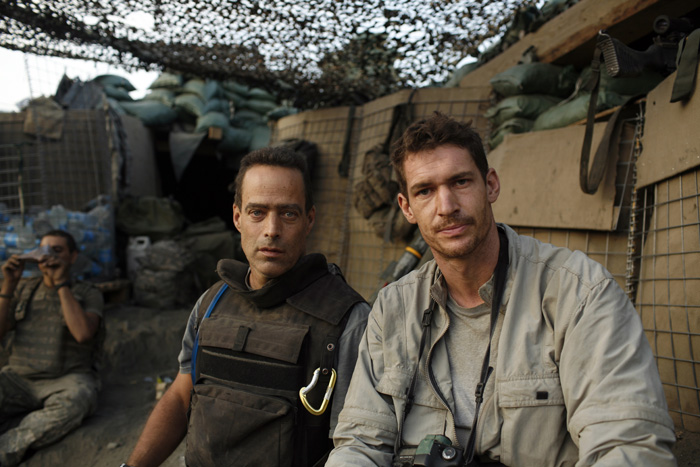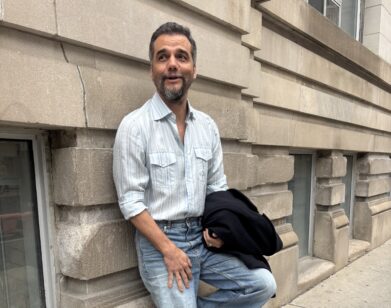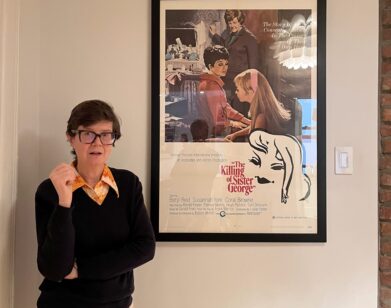Under Fire: Restrepo

SEBASTIAN JUNGER AND TIM HETHERINGTON; COURTESY OUTPOST FILMS
A visceral portrait of American soldiers in action, Restrepo (in theaters tomorrow) cuts straight to the core of modern warfare. Stationed in one of the Afghan conflict’s most contested regions, the film’s young subjects get in as many as half a dozen firefights a day; just as involved, and, in a way more experienced, are seasoned war correspondents Sebastian Junger and Tim Hetherington, who made a total of ten trips between them (not always together) to the same remote outpost, cameras in hand.
The footage they came back with–150 hours, which they edited into a 94-minute feature–shows the conflict from the platoon level. It’s not political commentary, Hetherington says, but rather “a distillation of what we’ve come to understand about young men in war.”
In this case, those men are brave, scared, ethnically diverse, and competent, even if the diplomacy they occasionally have to exercise with Afghan villagers seems way beyond their pay grade. For Junger, whose previous embeds in Bosnia and Africa have been with “militias at best, drunk child soldiers at worst,” sharing a trench with a professional army simplified things a little. “It really was like comparing a street gang to the police,” he says. “These guys were very aware of moral and ethical guidelines, rules of engagement.”
Invariably, though, the chaos of war puts those orders to the test. Junger and Hetherington’s cameras capture the confusion and frustration of fighting a mostly unseen enemy and, in one unforgettably raw combat scene, the emotional lightning bolt of seeing a close friend killed. “People think soldiers have another set of reactions to things because they’re soldiers,” Junger explains. “They don’t. They’re just young men.”
“That said,” he added, “they’re trained to be highly functional, so while they’re having their emotional reaction, they’re returning fire.” Thanks to Junger and Hetherington’s equally impressive multi-tasking, those super-charged moments arguably make a bigger impact here than they do on the page. And unlike the Hollywood version, Hetherington points out, this one’s real. “When the lights go out and you’re in the theater, you really are there.”






